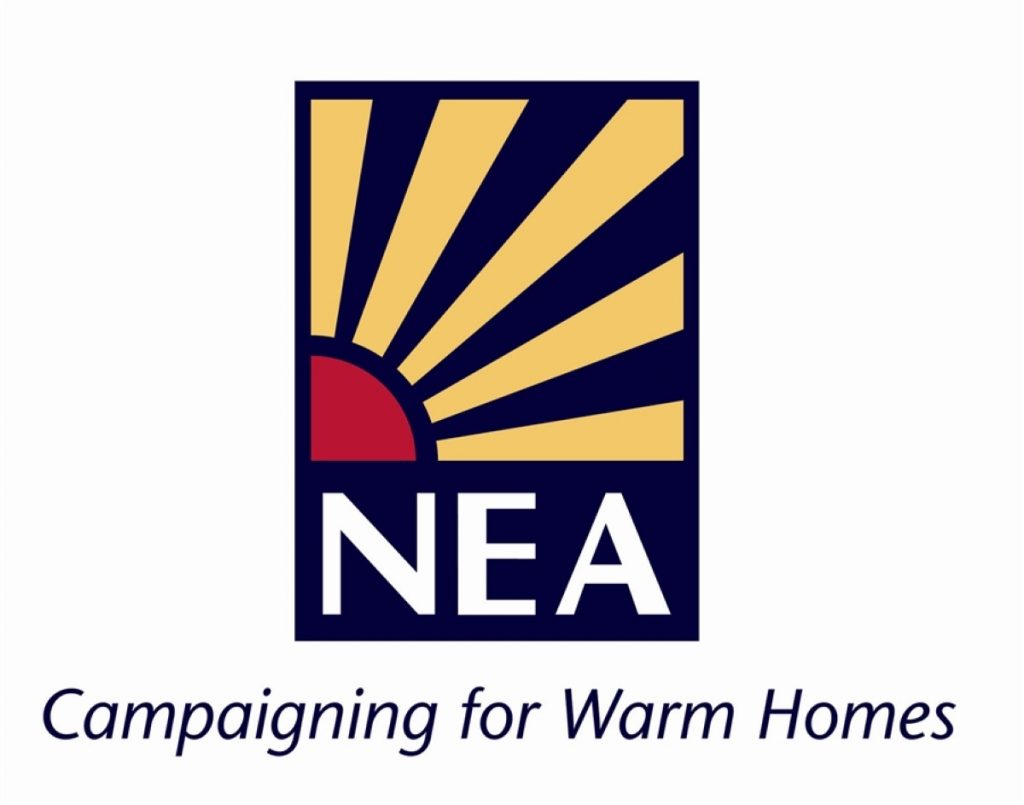NEA: Don’t shiver in the cold weather there is free help available to lower energy bills
With temperatures plummeting and energy bills continuing to soar, fuel poverty charity National Energy Action is using Big Energy Saving Week to urge all households to check if they are eligible for free help to improve the heating and insulation of their properties this winter.
The Government estimates that approximately 3.5 million households in England are living in fuel poverty, unable to heat their homes to the level needed for their comfort and wellbeing. Many people, worried about rising energy costs, choose to ration their energy use, unaware that living in a cold home can actually cause or exacerbate a range of serious health conditions such as strokes, heart attacks and bronchitis. These issues currently cost health and social services over £1 billion annually across the UK.
£100 million is available in 2012-13 to improve the heating and insulation of low income households through the Government’s Warm Front scheme, which is open to applications from owner-occupiers and private sector tenants in receipt of certain income-related benefits. It provides grants of up to £3,500 to fund improvement measures such as insulation or central heating systems, or up to £6000 if the home is not connected to the gas network, however, with the scheme now in its final year there is a real concern that if people don’t apply now, they may miss out completely on the help to which they are entitled.
Jenny Saunders, Chief Executive at NEA said ‘’It is important to save energy, but we also want to make sure people are able to keep their homes warm. Help is available to install new insulation and efficient heating systems making energy bills more affordable and your home more cosy. Even if you have applied for Warm Front and been unsuccessful in the past, recent changes to the eligibility criteria means that you may now qualify for assistance. Your energy supplier is also offering free or discounted insulation and discounts of £130 on their energy bills for some customers. Please take action now before these schemes close.”
Energy and Climate Change Minister Greg Barker said “Big Energy Saving Week is a great opportunity for people to get practical help and advice on how to make their homes more energy efficient and save money on their energy bills. Our Warm Front scheme offers cash to help the most vulnerable households with heating and insulation so that they can keep warm this winter. It’s easy to apply, and I would encourage people to check if they can benefit from this help.”
For information call the Home Heat Helpline on 0800 33 66 99 or visit www.homeheathelpline.org.uk.
END
Editor’s notes.
1. NEA is the UK’s leading fuel poverty charity campaigning for affordable warmth in the homes of vulnerable people. For further details visit http://www.nea.org.uk
NEA has been able to help over 7.5 million households in the UK gain access to energy advice and energy efficiency grants.
3. Fuel poverty is currently defined as the need to spend over 10% of household income on fuel costs to maintain adequate warmth for health and comfort.
The passage of the Warm Homes and Energy Conservation Act 2000, supported by the UK Fuel Poverty Strategy 2001, requires the Government to seek to end to fuel poverty for all households by 2016 (2018 in Wales). The Strategy adopted a further interim target to end fuel poverty for all vulnerable households in England by 2010 which was not achieved due to the cost of energy more than doubling since 2004.
The most recent Government statistics illustrate that in 2010, 3.5 million households in England were fuel poor, equivalent to 16.4 per of all households. Around 2.8 million of these fuel poor households were vulnerable, which represents around 18.1 per cent of all vulnerable households in England. Since then energy bills have soared and the Government estimated that approximately 4 million households in England are now estimated to be living in fuel poverty, unable to heat their homes to the level needed for their comfort and wellbeing.
6. Big Energy Saving Week (22-27 October 2012) is being run by Citizens Advice to help people save money on their energy bills. It is funded by the big six energy companies and as well as NEA involves Energy Saving Trust, the Government, Ofgem, and consumer groups. For further information visit www.citizensadvice.org.uk
Over 2011-12 the Warm Front scheme was under-spent by over £50 million. The number of applications for the scheme fell sharply after being over-subscribed in 2010-11. Claim rates are again low this year. Across England only 11,766 people applied to Warm Front between April and July 2012. Although higher than the claim rate in April – July 2011 when there were only 6,574 applications, this is a huge fall compared to the 133,034 applications received in the whole of the financial year 2010-2011. The source used to determine these and those stated above was Consumer Focus; Click here
Unlike other energy efficiency programmes, the Warm Front scheme is not delivered by suppliers but by a centrally contacted provider (Carillion Energy Services) and is paid for by Treasury. The Comprehensive Spending Review in October 2010 announced major reductions in Warm Front funding; whilst the budget for 2010-2011 was £345 million, funding for 2011-2012 and 2012-2013 fell to £110 million and now £100 million respectively. As noted above, public funding for heating and insulation measures for low-income and vulnerable households in England (the Warm Front programme) terminates at the end of March 2013. England will then be the only UK nation providing no direct tax funded support to enable vulnerable and financially disadvantaged households to improve heating and insulation standards in their homes.
For further information contact Sarah Wright, Senior Campaigns and Communications Officer, NEA on 0191 261 5677 / 07884371913





-01.png)